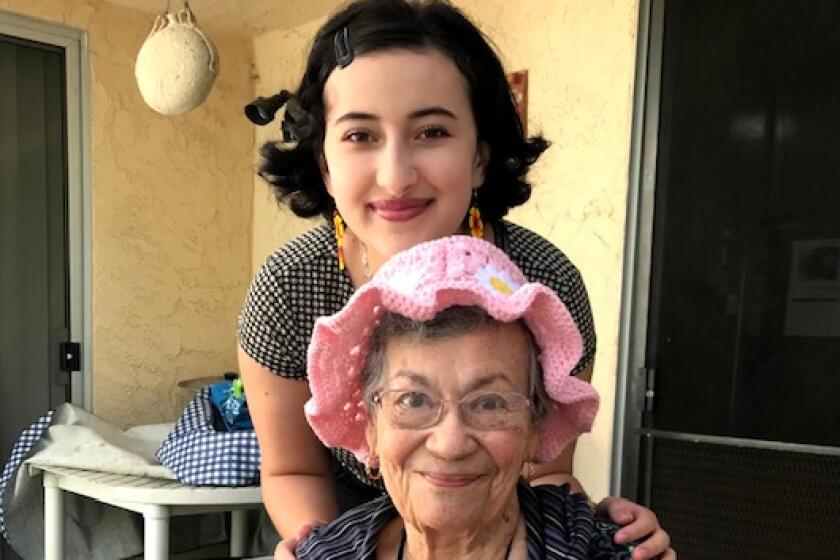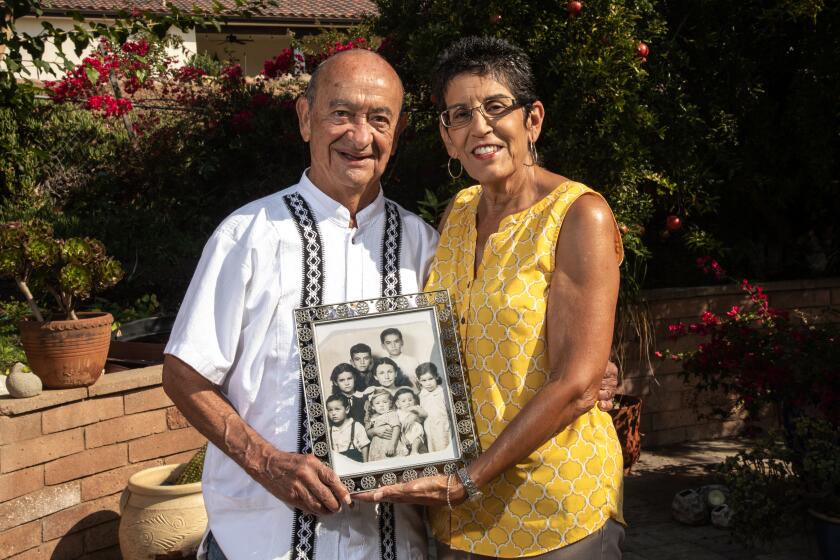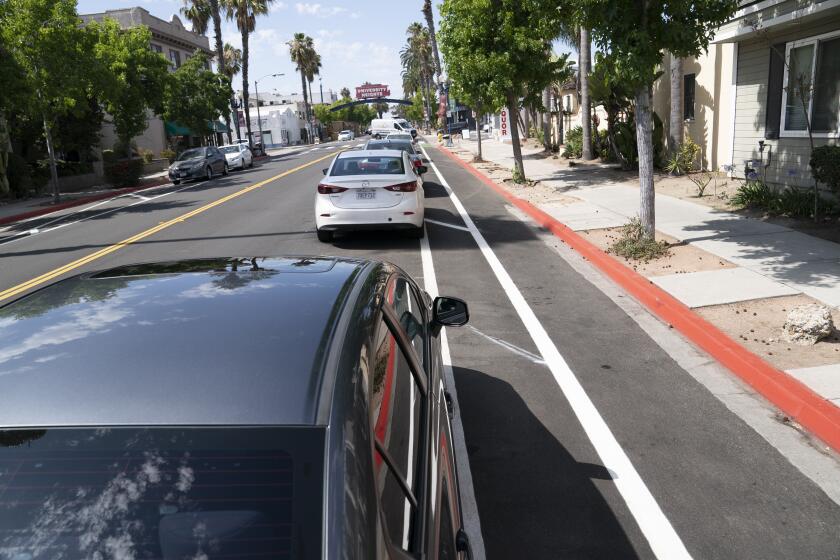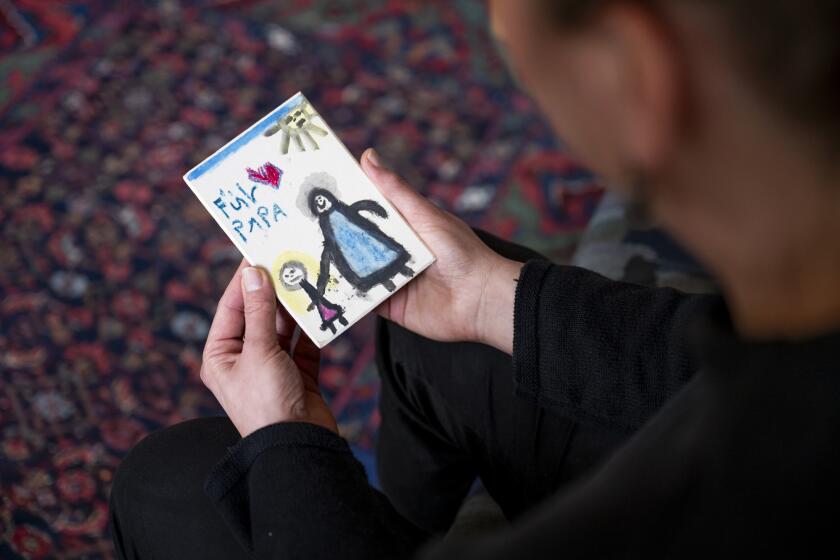Opinion: Our family likes to say, ‘We didn’t cross the border, the border crossed us.’
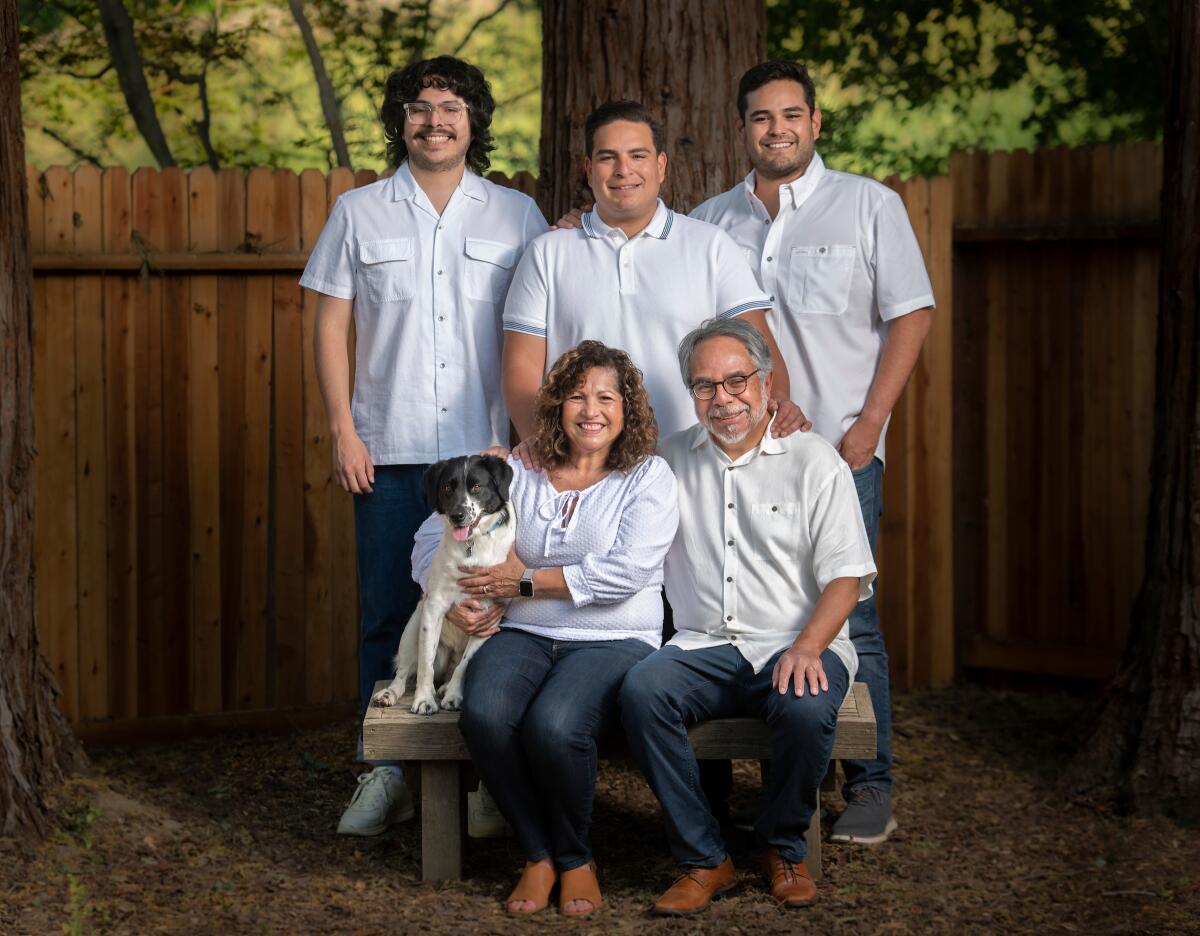
Garcia is executive director of the California Student Aid Commission. She is the niece of Roger Cazares and lives in Sacramento.
My grandparents, Carlos and Berta Cazares, arrived in the U.S. with nine children in tow more than 70 years ago. Our multigenerational immigrant story is one of hard work, struggle, perseverance and education.
Today, I am the executive director of the California Student Aid Commission, a job that has taken me full circle. I received a Cal Grant many years ago to pay for college and now work every day to help other low-income students with financial need pay for and succeed in college. Based on where I started in life, I never imagined I would one day lead among the largest financial aid systems in the country, one that distributes more $2.4 billion to a half-million students annually.
In many ways, my story is very ordinary. I am a first-generation Latina raised in a blue-collar mostly Mexican American community east of Los Angeles — Pico Rivera. My mother, Celia Cazares Linares, immigrated to this country at the age of 10 with her family in search of a better life. My father, Eddie Linares, came from a family that lived for generations in California before it became part of the United States, known as Californios. Our family likes to say, “We didn’t cross the border, the border crossed us.”
Read two other pieces by the Cazares family on Mexican Independence Day
As my political consciousness grew, so did my love and respect for my activist family members.
Opinion: My birth name is Rogelio Amaya Cazares, but my kindergarten teacher changed it. Here’s why.
I tell my story because the foundation for my pursuit of social and economic justice was set by my childhood experience and parents.
Both my parents had a great work ethic. I saw them work hard as blue-collar laborers. Often times, my mom would return home after a long day’s work on the assembly line with her fingertips raw from packing meat on a conveyor belt. My dad recycled lead press plates by melting them daily for the Los Angeles Times printing presses. Although they were low-skilled workers, they were proud and showed up to work every day in pursuit of their version of the American dream.
My mother was immensely proud of her immigrant roots and was equally proud to be an American. As an immigrant, she was acutely aware of the economic and educational opportunities available in the United States. She would say, “We are Americans of Mexican descent.” She had great hopes her children would benefit from the earlier sacrifices she and my dad made coming to this country. She knew that the immigrant experience came with deep hardship and many inequities.
For our extended family, education was the ticket out of poverty. My grandfather was a brilliant and self-educated man who understood the value of education. This helped pave the way for several of my uncles to receive four-year college degrees. They each experienced great success and rose to some of the highest levels of government, the judicial system and community-based nonprofit work.
I had a front-row seat to witness how a college education opened doors for them and how it helped my extended family shift from living in poverty to living a very comfortable middle- to upper-middle-class life. I also noted that with education came greater influence to address pervasive inequities that historically held back people from low-income communities of color. My family used its education and influence to address many of these inequities.
My personal educational experience had many ups and downs. My early education was great. I was a straight-A student until seventh grade. Then the reality of attending low-income schools began to impact the quality of my education. I attended a high school that was so preoccupied with controlling gangs and drug use that it devoted minimal time to creating college opportunities for students like me. I fell through the cracks. Fortunately, after graduating from high school, I was able to enroll in a community college, which gave me a second chance. After a lot of hard work and determination, I transferred to UCLA and received my bachelor’s degree. Eventually I received my master’s degree in public policy from Claremont Graduate University.
I began thinking about all the talented students in my community who were never nurtured or told you can go to college. Communities like mine send few students to college compared to other more affluent communities. I realized while there is talent in every ZIP code, there is not equal opportunity in each ZIP code. This has sparked a lifelong passion in me to fight for educational equity and other equal protections under the law.
Today, I attribute much of my success to my family and the core values it instilled in me. The Linares/Cazares family place great value on hard work, perseverance, education and devotion to family. This is at the core of who I am and has carried me through my career and through life. I am blessed to have my extraordinary, ordinary life.
Get Weekend Opinion on Sundays and Reader Opinion on Mondays
Editorials, commentary and more delivered Sunday morning, and Reader Reaction on Mondays.
You may occasionally receive promotional content from the San Diego Union-Tribune.
